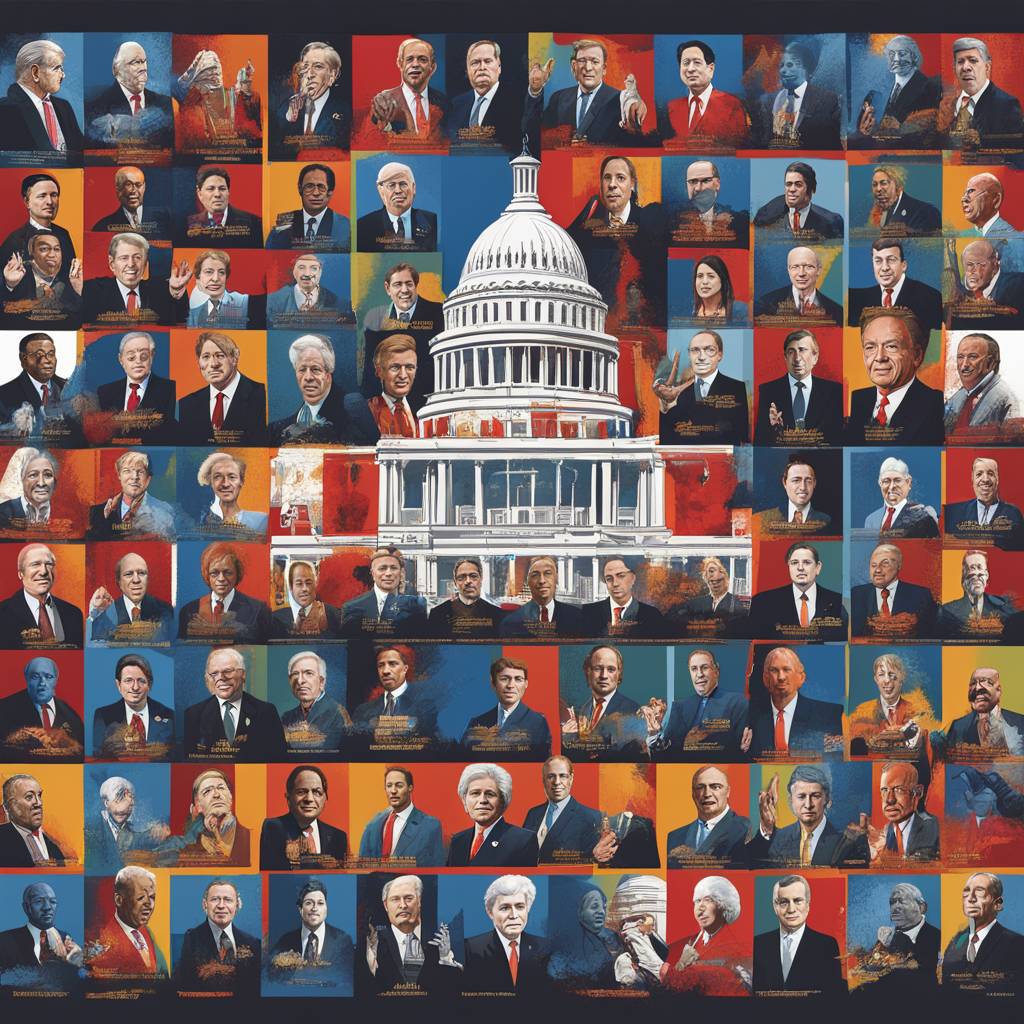The political landscape of the GOP is currently in a state of upheaval, with Senator Lisa Murkowski expressing frustration with former President Trump as the party’s nominee. Murkowksi’s refusal to support Trump contrasts with the position of Trump-endorsed candidate Bernie Moreno, who aligns himself with Trump’s false claims about the 2020 election. Moreno’s victory in the Republican primary in Ohio signifies a shift towards more Trump-aligned candidates in the party, leaving Murkowski feeling out of place as a moderate Republican.
Murkowski’s political career has been marked by her willingness to reach across party lines and her unique brand of politics. Despite facing challenges from Trump-backed candidates, Murkowski has managed to maintain her position as a senator through nonpartisan ranked-choice voting in Alaska. Her frustration with the direction of the GOP mirrors that of moderate Democrats, such as Senators Kyrsten Sinema and Joe Manchin, who are choosing to leave the Senate rather than face difficult reelection campaigns.
The departure of moderate senators like Sinema and Manchin reflects a broader trend in the Senate of centrists leaving the chamber. The absence of dealmakers in the Senate has significant implications for passing legislation, as the need for 60 votes to advance bills requires bipartisan support. With the departure of senators like Romney, Portman, Alexander, and Corker, the Senate is losing members who have been central to key legislative deals. As Murkowski and other centrists remain in the Senate, the future landscape of the chamber remains uncertain.
The trend of centrists leaving the Senate is also mirrored in the House, where conservative members frustrated with lack of action are resigning. Republicans face challenges in passing legislation as they can only afford to lose one vote on key issues. The resignation of lawmakers like Rep. Mike Gallagher and Rep. Ken Buck highlights the growing divisiveness within the Republican Party and the inability to find common ground on critical issues. The lack of cooperation and effectiveness in Congress contributes to frustration among lawmakers and a sense of disconnect from serving the American people.
As Mitch McConnell steps down as Senate GOP leader, the future of the chamber remains uncertain. The departure of key moderates raises questions about whether the Senate will become more partisan, resembling the House in its divisiveness. The loss of senators like Sinema, Manchin, and the retiring members means a shift in the dynamics of the Senate, potentially paving the way for more polarized and partisan politics in the future. The challenges faced by moderate lawmakers in navigating the current political landscape reflect broader trends of polarization and ideological divides within Congress.













